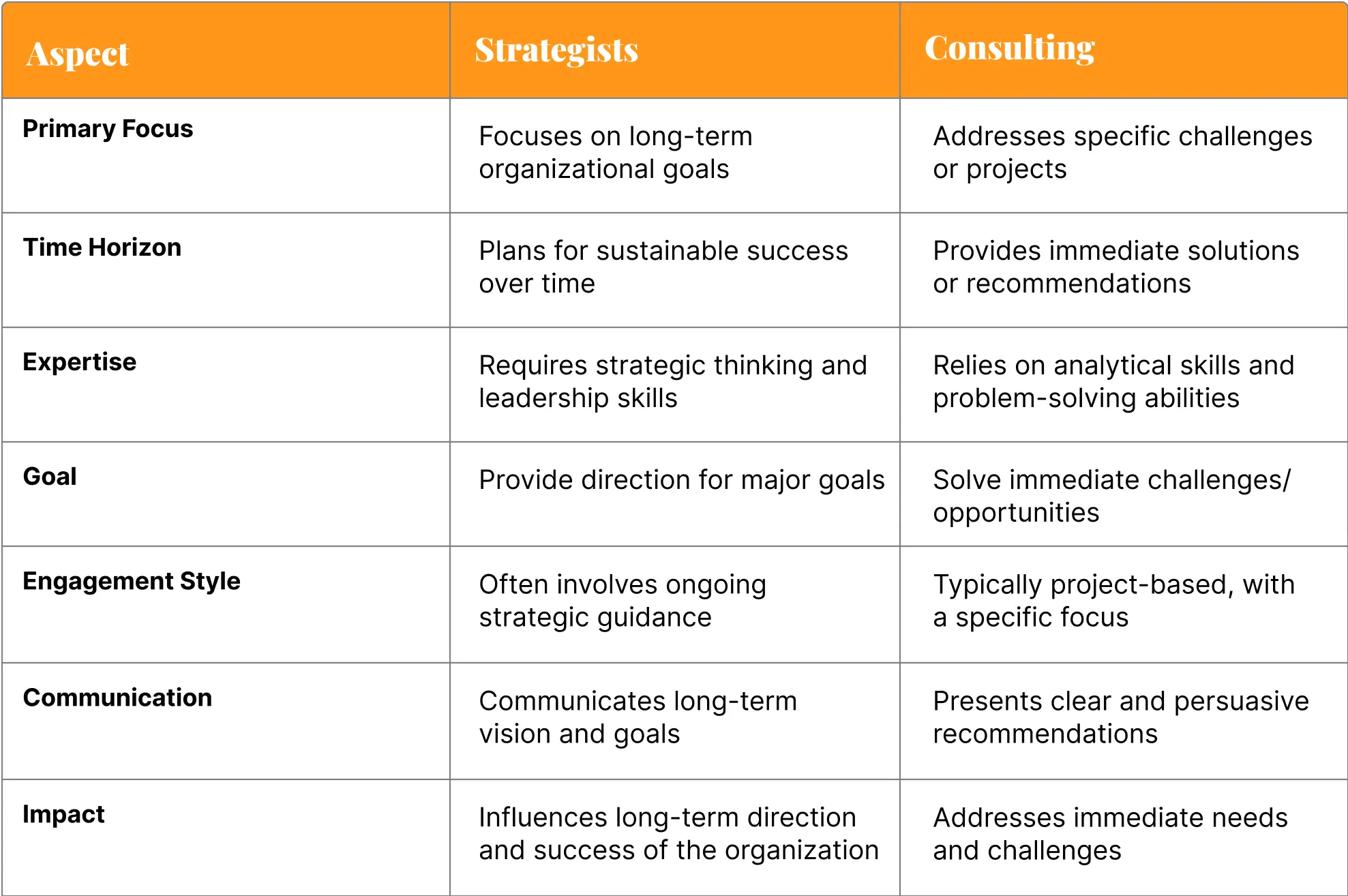Exploring the differences between legal consultants vs lawyers sheds light on their distinct roles and services.
– Legal Consultants Vs Lawyers: Education and Expertise
Legal Consultants
Legal consultants typically have a Juris Doctor (JD) or equivalent law degree, along with practical experience in the legal field. They often specialize in specific legal topics or industries, enhancing their consulting capabilities. Unlike lawyers, legal consultants do not typically have to pass the bar exam.
Their expertise often comes from specialized knowledge and experience in a particular law or legal practice area. They assist clients in understanding complex legal issues and making knowledgeable decisions.
Lawyers
Lawyers are required to have a Juris Doctor (JD) degree from a law school and pass the bar exam in the state where they intend to practice. Also, they must meet any other licensing requirements set by their jurisdiction.
They provide legal representation and advocacy for clients across various legal matters, including court cases, negotiations, and legal transactions. Lawyers leverage their legal expertise to safeguard and advocate for their client’s rights and interests.
– Legal Consultants Vs Lawyers: Scope of Services
Legal Consultants
Legal consultants specialize in offering advisory services to clients, including providing legal opinions, conducting compliance assessments, and assisting with strategic planning. They may also provide training and workshops to educate clients on legal matters.
Lawyers
Legal consultants specialize in providing advisory services, which include offering legal opinions, conducting compliance assessments, and aiding in strategic planning. They may also offer training and workshops to educate clients on legal matters.
– Legal Consultants Vs Lawyers: Client Interaction
Legal Consultants
Legal consultants frequently adopt a collaborative approach, closely working with clients to grasp their distinct requirements and offer tailored solutions. They might collaborate with other professionals like accountants or business advisors to provide comprehensive advice that considers various facets of a client’s situation.
Lawyers
Lawyers typically have direct client interactions and take on a more active role in legal proceedings. They communicate legal options and strategies to clients, advocate on their behalf in negotiations or courtrooms, and ensure that their client’s rights are protected throughout the legal process.
– Legal Consultants Vs Lawyers: Legal Standing
Legal Consultants
Legal consultants may or may not be licensed attorneys. While some have a legal background and hold law degrees, others come from related fields such as compliance, risk management, or business. These consultants leverage their expertise and knowledge to provide strategic legal advice and guidance to clients.
Lawyers
Lawyers are professionals licensed to practice law, bound by strict professional and ethical standards set by regulatory bodies. These standards ensure that lawyers maintain the highest levels of legal accountability and ethics in their practice.
– Legal Consultants Vs Lawyers: Role in Disputes and Litigation
Legal Consultants
Legal consultants assist in preparing for disputes or litigation by providing legal analysis and strategic advice. By leveraging their legal expertise and negotiation skills, they facilitate agreements between parties, minimize risks, and ensure compliance with regulations, serving as invaluable allies in managing legal challenges efficiently and effectively.
However, they do not typically represent clients in court.
Lawyers
Lawyers represent clients in disputes and litigation, including court appearances, negotiations, and settlements. They advocate for their client’s interests and present legal arguments on their behalf.
In a nutshell, legal consultants provide advisory services and strategic guidance based on their specialized legal knowledge, while lawyers offer a broader range of legal services, including representation in court. Both play important roles in the legal field, but their functions and scopes of practice differ based on their expertise and qualifications.

